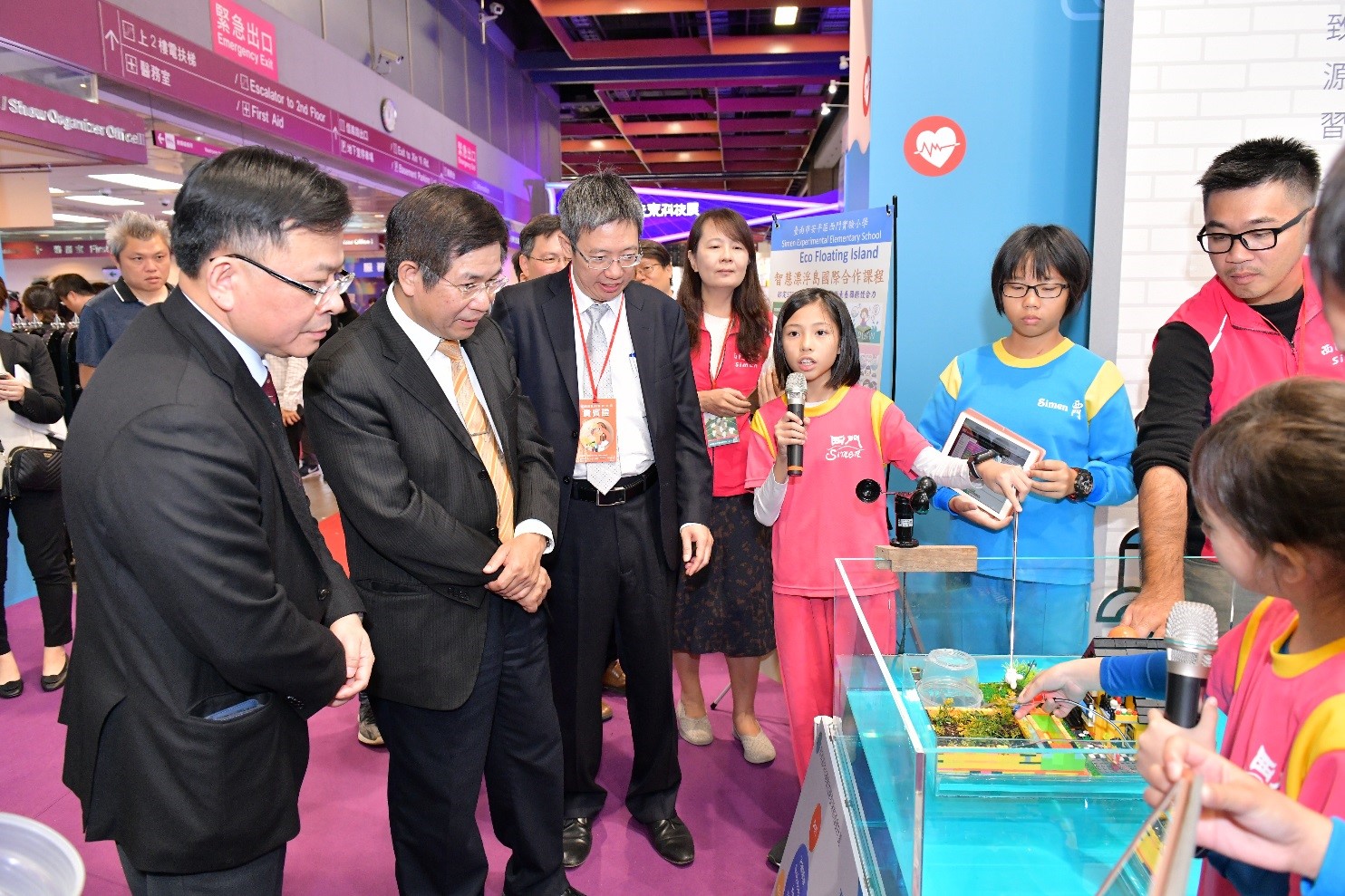Digital Citizens – Joining Hands to Forge the Future EdTech Taiwan Exhibition held in IT Month

As part of 2019 Information Technology Month (IT Month), the Ministry of Education (MOE) participated in the ‘EdTech Taiwan Exhibition’ at the Taipei World Trade Center Hall 1 from Wednesday, December 4 to Sunday, December 8, 2019. With the main theme of the activity being ‘Digital Citizens – Joining Hands to Forge the Future’, to showcase the innovative and diverse application of information technology education and demonstrate varied achievements in promoting information technology education, the MOE invited its partners of information technology education, ranging from primary schools to universities from 22 counties and cities, to join the event and hosted interactive experiential courses and activities at the venue.
The MOE divided accomplishments in promoting information technology education into five themes in the exhibition, including 'Specialty Courses,' 'Interdisciplinary learning,' 'Smart Learning, 'Computational Thinking,' and 'Artificial Intelligence (AI) and Augmented Reality (AR)/Virtual Reality (VR).' These themes aimed to help students utilize technology to expand their learning potential, achieving in their own unique way.
The content of the exhibition was derived from school life and local culture and history. It aimed to help students employ technology in their daily life to deepen and broaden their learning, such as utilizing AR to witness the history of Zuoying, making an Astronomy Classroom app or building 'detective academy' scenarios at school. This can guide students to correctly apply technology tools in learning from various aspects such as utilizing devices, sharing on social media, acquiring information, and documenting their learning processes.
The MOE's 'Adaptive Learning' Website uses AI to determine students' learning weaknesses precisely and rapidly, while also analyzing their learning processes and behavior, to advise teachers what assistance students need. This system also automatically recommends personalized learning blueprints to prevent students from repeatedly practicing content or questions that they have already learned. This not only saves time for students, but also elevates teaching efficiency for teachers, and achieves the goal of "examination and teaching according to students' aptitude and ability".
